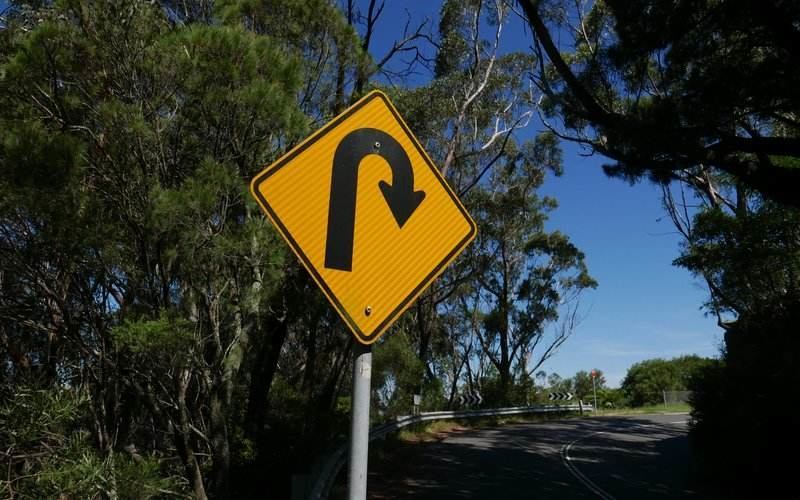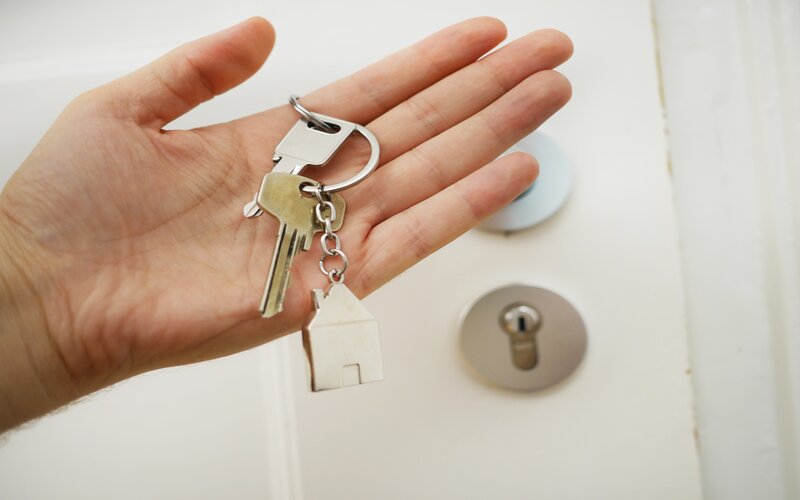Whether or not to fix your home loan rate can be a difficult call. For the risk averse, locking in a set mortgage repayment might seem an attractive way to protect yourself from rate increases. In reality though, it's normally just as much of a gamble - fixing just before variable rates start to fall may result in paying much more interest than you otherwise would have.
As any sensible punter will tell you, more information increases the likelihood of success. Here's what to know before choosing between a fixed or variable interest rate.
When should you fix your home loan interest rate?
For many mortgage holders, choosing between variable and fixed rates is all about anticipating future movements of the RBA cash rate. Fix while rates are bottomed out and you can lock in lower repayments, insulated from seeing your repayments increase if variable rates start climbing.
To see this in action, you only need to look back to 2021 - the most recent peak in the popularity of fixed-rate home loans in Australia. From June to September, more than 45% of new mortgages had fixed rates (10-15% is more usual). At the time, the RBA cash rate was at the all time low of 0.10%. Our analysis suggests that if a borrower with a $540,000 home loan fixed their rate at 2.00% for three years or more in April 2021, then after three years they would theoretically be $24,000 better off than if they'd remained on a variable rate.
Some borrowers might also value the certainty that fixed rates can offer. Locking in your mortgage repayments for a fixed period allows you to budget more accurately and plan further into the future.
When not to fix your home loan interest rate
The flipside to fixing is that if interest rates go down, you miss out. Take a borrower who fixed their rate in early 2008, just before the Global Financial Crisis, with the cash rate at 7.25%. There were no indicators at the time that rates would be cut by 4.25% by April 2009, but that's exactly what happened.
Break costs on fixed-rate loans, the fees you pay for paying off the loan early to refinance elsewhere, can often be several thousand dollars. This can make a fixed term pretty restrictive. Say you're halfway through a five-year fixed term and want to use your equity to buy another property - high break costs might mean you need to hold off until you've seen out the current term.
Fixed-rate home loans also tend to not come with as many extra features. Offset accounts for example are more common on variable-rate loans. Fixed-rate mortgages are often also more restrictive about making extra repayments and paying the loan off early.
Fixing your home loan in 2024
With the RBA cash rate at 4.35%, a decade high, the majority of Australians are choosing variable rates. Since August 2023, less than 5% of new home loans in Australia have had fixed rates - just 1.16% of new borrowers in April '24 chose fixed rates. The second half of 2024 has seen a slight uptick, coinciding with many lenders slashing fixed rates in response to falling bond yields on global markets. Lenders' funding costs for fixed-rate loans are strongly linked to bond yields, so when bond yields fall, lenders can afford to reduce the interest rates they charge on fixed-rate loans.
Split Home Loans
If you can't make up your mind about whether or not to fix, a split home loan lets you fix a portion of the loan and leave the rest variable.
A split loan essentially separates the balance into two accounts - one is charged a fixed interest rate, the other variable. There's pretty much no limit to the way you can split the loan, so you can allocate the funds 50/50 or 20/80 - whatever you like.
Splitting your home loan can allow you to hedge your bets. Should rates go down, your repayments will still decrease, while if they go up your repayments won't go up by quite as much. However, it obviously also means you won't reap the benefits to the same extent, so it isn't always the best of both worlds.
What to consider before fixing your home loan
There are a few variables to keep in mind if you're considering fixing your home loan.
1. Interest rate movement
Fixing your home loan is not that different from wagering a bet with your lender over whether interest rates are likely to go up or not. If you strongly believe variable rates are set to increase in the near future, this might be the impetus to lock in.
Also, keep in mind that lenders are playing the same game, pricing in future rate movements. If variable rates are low but expected to go up before too long, you might find fixed rates to be higher than variable rates. On the other hand, if variable rates are high but forecast to go down, fixed rates might be lower.
2. Break fees
The cost to break a fixed loan is typically much higher than on variable rates. It can be complicated to work out exactly how much, but depending on how long is remaining on the fixed term, break costs can sometimes be tens of thousands of dollars.
That means if you do decide to fix but later decide you want to refinance, you'll probably be stung with a hefty penalty. If you want to keep your options open, fixing can be be a bit restrictive.
3. Revert rate
Before fixing, you should investigate what the revert rate might be on your loan once the fixed term expires. Don't assume the lender will do you a solid and revert your loan to the bank's lowest available variable rate once the fixed-rate period ends. Instead, the lender will probably just put you back on whatever their standard variable rate is - which can be quite a bit higher than their lowest rates.
Read more: Why revert rates are important
4. Fixed term
If you do decide to fix, the next decision is exactly how long a fixed period you're looking for. In Australia, fixed rate terms are generally between one and five years (although a few lenders offer longer terms). Different length fixed terms can have different rates depending on market conditions, although longer terms will generally come with a bit of an uncertainty premium.
Read more: Home loans with fixed-rate terms of three years or less
Read more: Home loans with fixed-rate terms longer than 3 years
Savings.com.au's two cents
In his best-selling book The Barefoot Investor, Scott Pape had this to say about fixed-rate home loans :
"The only reason you would fix your rate is if you're really struggling and you want the security of fixed repayments, but for everyone else it's too much of a gamble".
Most people choose to fix their rates because they need financial certainty. For others, it's about trying to beat the banks at their own game and secure the lowest possible rate.
Whatever your motivation is for considering a fixed home loan rate, you should first consider your long-term financial needs and goals, do your research, and make sure you understand the advantages, disadvantages and long term implications of fixing.
Initially published by Emma Duffy in 2021
First published on June 2021
Image by Wayhome Studio via Adobe Stock
Disclaimers
The entire market was not considered in selecting the above products. Rather, a cut-down portion of the market has been considered. Some providers' products may not be available in all states. To be considered, the product and rate must be clearly published on the product provider's web site. Savings.com.au, yourmortgage.com.au, yourinvestmentpropertymag.com.au, and Performance Drive are part of the Savings Media group. In the interests of full disclosure, the Savings Media Group are associated with the Firstmac Group. To read about how Savings Media Group manages potential conflicts of interest, along with how we get paid, please click through onto the web site links.

Ready, Set, Buy!
Learn everything you need to know about buying property – from choosing the right property and home loan, to the purchasing process, tips to save money and more!
With bonus Q&A sheet and Crossword!



 Denise Raward
Denise Raward
 Harry O'Sullivan
Harry O'Sullivan
 Bea Garcia
Bea Garcia
 Hanan Dervisevic
Hanan Dervisevic


